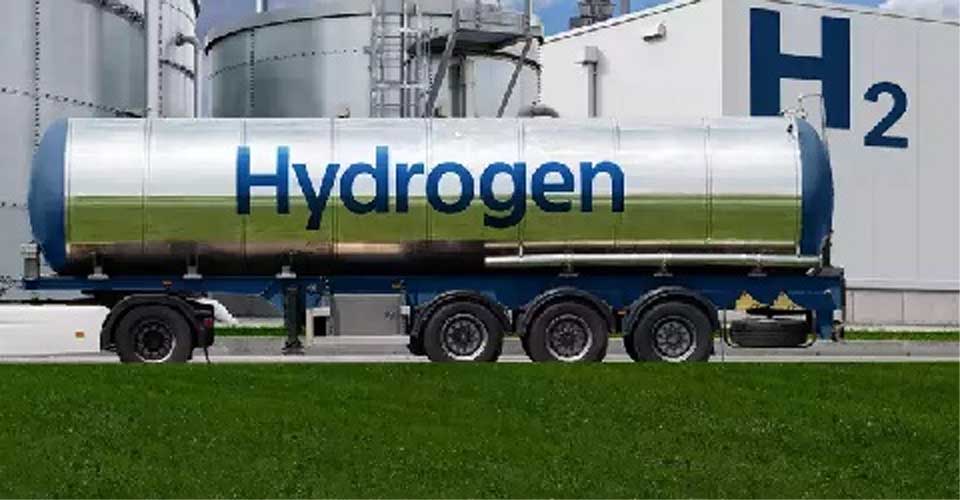The Indian transportation sector, long dominated by the hum of gasoline engines and the plume of diesel fumes, is undergoing a historic metamorphosis. With the National Green Hydrogen Mission as its engine and a hefty Rs. 496 Crore as fuel, the Ministry of New & Renewable Energy (MNRE) has ignited the spark of change, launching bold pilot projects to explore the use of Green Hydrogen in this crucial domain. This ambitious move marks a significant turning point in India’s decarbonization journey, positioning the nation as a potential leader in the global clean energy race.
 The pilot projects go beyond the singular focus on replacing fossil fuels. They delve into two critical areas, laying the groundwork for a diverse portfolio of hydrogen-powered vehicles:
The pilot projects go beyond the singular focus on replacing fossil fuels. They delve into two critical areas, laying the groundwork for a diverse portfolio of hydrogen-powered vehicles:
-
Fueling Innovation Across the Spectrum: Researchers are pushing the boundaries, exploring both fuel cell-based and internal combustion engine-based propulsion systems adapted for green hydrogen fuel. This dual approach caters to a wide range of vehicles, from personal cars to heavy-duty trucks, ensuring inclusivity and adaptability. The initiative fosters innovation in both established and emerging technologies, positioning India at the forefront of the evolving hydrogen landscape.
-
Building Bridges: Infrastructure for a Hydrogen-Fueled Future: Building a robust network of hydrogen refuelling stations is crucial for the widespread adoption of this technology. The scheme actively supports their development, ensuring convenient access to clean fuel across the country. A well-developed infrastructure forms the backbone of any successful energy transition, and this initiative lays the groundwork for a seamless shift towards green hydrogen-powered transportation.
The ambition doesn’t stop at conventional vehicles. The scheme embraces diverse applications of green hydrogen to further reduce the carbon footprint of the transport sector:
- Green Hydrogen-derived Fuels: Blending green hydrogen with biofuels like methanol or ethanol could create cleaner alternatives for existing vehicles, offering a smoother transition to a hydrogen-powered future. This approach leverages existing infrastructure and fuels, facilitating a gradual and adaptable shift towards greener solutions.
- Addressing Diverse Needs: The scheme welcomes proposals exploring other creative applications of green hydrogen in the transport sector, catering to the specific needs of various segments. This could include solutions for long-haul freight, specialized vehicles, or public transportation systems, ensuring inclusivity and catering to the unique requirements of different stakeholders.
Embracing green hydrogen in transportation promises not just environmental benefits but also a multitude of advantages for India and the world:
- Decarbonization Champion: Replacing fossil fuels with green hydrogen can significantly reduce greenhouse gas emissions from the transport sector, contributing significantly to India’s ambitious climate goals and its commitment to a sustainable future. This paves the way for cleaner air, healthier communities, and a reduced impact on global climate change.
- Self-reliance Champion: The National Green Hydrogen Mission, of which these pilot projects are a part, aims to make India Aatma Nirbhar in clean energy technologies. This fosters domestic innovation, reduces dependence on external sources, and strengthens India’s position in the global clean energy landscape, potentially creating numerous export opportunities.
- Cost-competitive Contender: With advancements in renewable energy and electrolyzer technology, green hydrogen is expected to become cost-competitive in the coming years, making it a viable and sustainable alternative for the long term. This ensures the long-term economic feasibility of the transition and avoids creating new dependencies.
- Technological Leadership Torchbearer: By actively investing in green hydrogen research and development, India can position itself as a global leader in this emerging clean energy field. This leadership role translates to economic benefits, international collaborations, and the potential to influence global standards and technological advancements in the field, shaping the future of clean energy globally.
These pilot projects are not just about India’s clean energy ambitions; they hold immense potential for shaping a more sustainable future for global transportation. By actively participating, researchers, innovators, and entrepreneurs can contribute to this transformative journey and leave their mark on a cleaner tomorrow. The complete scheme guidelines are available here: [link to guidelines].
India’s green hydrogen pilot projects mark the beginning of an exciting journey, not just for the nation but for the world. By demonstrating the feasibility and potential of this clean fuel source, these initiatives can inspire other countries to follow suit, collectively accelerating the transition towards a cleaner and more sustainable transportation future for all. This vision transcends national borders, offering a glimpse into a future where clean air, sustainable mobility, and global collaboration pave the way for a healthier planet and a brighter future for generations to come.




